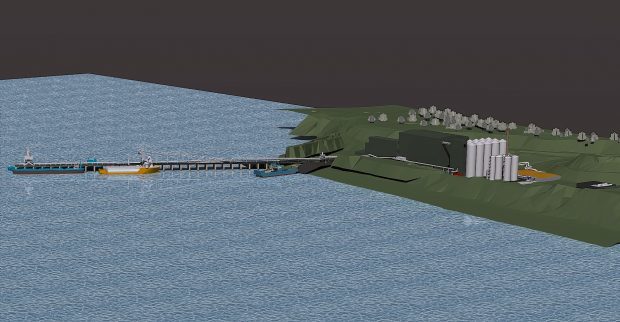Plans to create 55 jobs by building an £80million fish feed plant on Skye have been lodged with the local authority.
Fish farm company Marine Harvest Scotland has submitted its application for the facility on the site of a quarry at Kyleakin.
The move follows a consultation period involving public exhibitions and presentations to the community.
The plans have been widely welcomed since they were announced earlier this year, although the firm has been criticised after revealing at the same time that it would axe 80 jobs at its other Highland plants.
Construction of the facility is expected to take between a year and 18 months, and Marine Harvest believe it could be up and running as early as 2018, depending on the planning process.
Ben Hadfield, managing director of Marine Harvest Scotland, said: “We have been very pleased with the response to our plan to build a fish feed plant at Kyleakin.
“The feedback from the local community has been overwhelmingly positive and people are keen to see the feed plant up and running and providing jobs.
“That’s not to say they haven’t asked questions and raised concerns, but we are confident we have addressed these and reassured them on the issues brought up during the consultation process.”
The application includes assessments of transport, noise and wildlife as well as the potential impact on the Marine Protected Area.
Marine Harvest say the site at Altanavaig quarry is more than large enough to accommodate the development, which will include the feed plant itself as well as raw material storage silos, product storage and packaging, a loading area and car parking.
Ross, Skye and Lochaber MP Ian Blackford said: “I’m enthusiastic about the opportunities that the Marine Harvest plant will bring to the island of Skye, and I would argue Lochalsh as well.
“We want to see sustainable jobs in the Highlands and this is extremely good news.
“I’m delighted that Marine Harvest is investing in the local economy.”
Marine Harvest employs about 11,700 people in 24 countries, producing seafood for more than six million meals consumed around the world every day.
In January, the Norwegian firm announced that 15% of its Scottish workforce would be axed at its salmon farms, hatcheries and processing plants in the Highlands and islands and Argyll.
